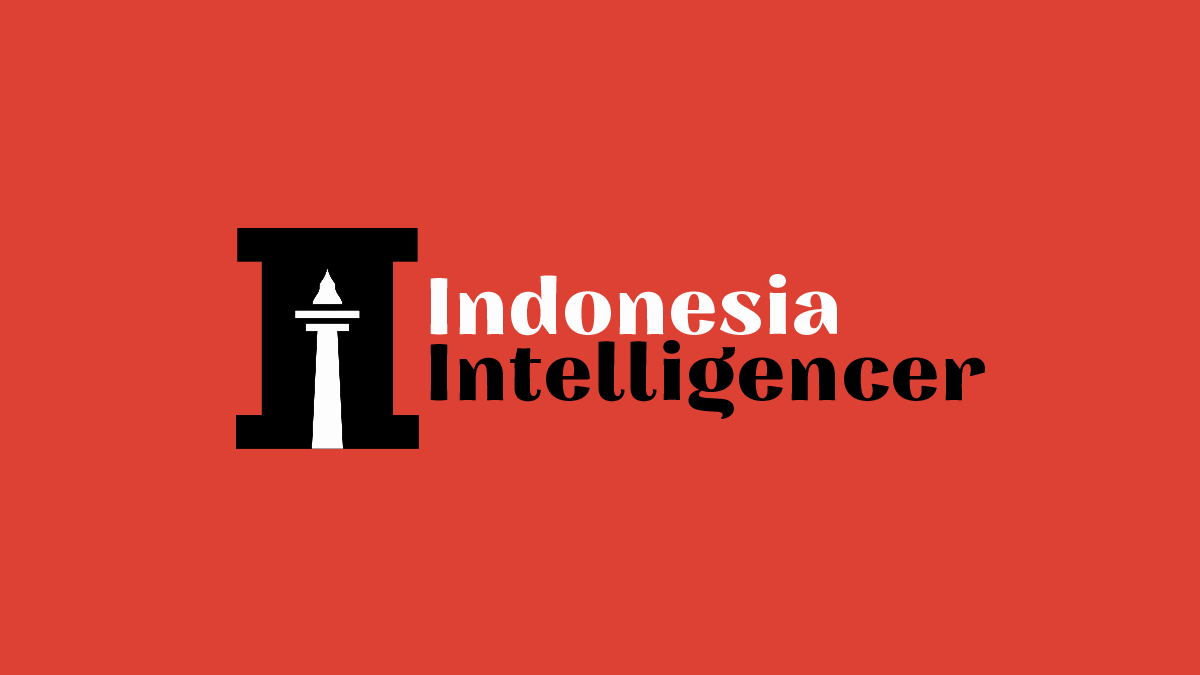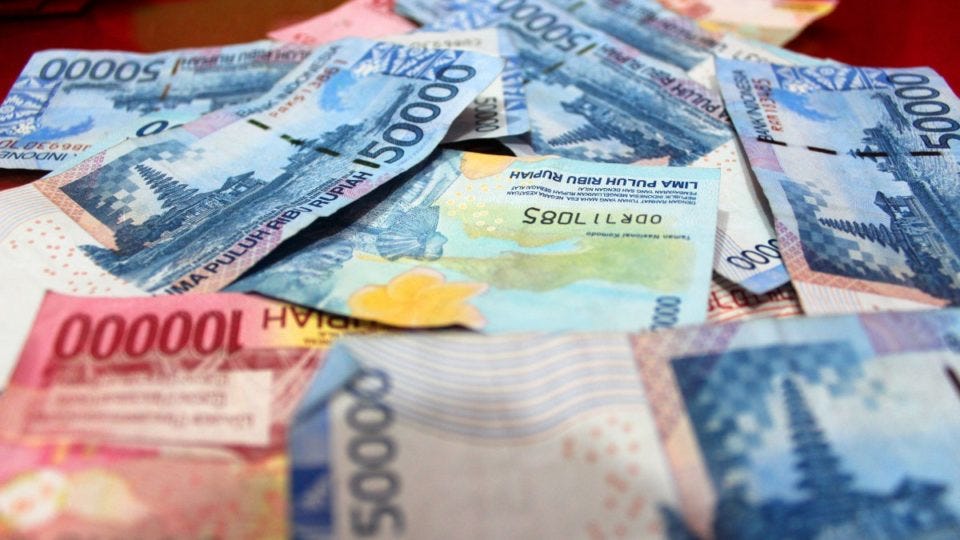Hello Coconauts!
As we unplug for the Christmas and New Year holidays in the next two Fridays, so too will Indonesia Intelligencer hit pause on bringing you the latest weekly major updates on the goings on in Indonesia.
This week, we are observing the tradition of looking back at the past year. Like 2020, 2021 will go down in history as a year of devastation, especially where COVID-19 was concerned. But the year also marked the nation’s resilience and recovery toward hopefully better days ahead.
This free and public 2021 Year in Review is the last edition of Indonesia Intelligencer for 2021. We’ll return to our regular schedule of weekly newsletters sent to paid subscribers every Friday beginning Jan. 7, 2022. Stay safe, and we hope you have a Merry Christmas and a Happy New Year!
COVID-19
The tsunami
2021 will perhaps be remembered as the most devastating year for COVID-19 in Indonesia. The country saw a huge mid-year wave triggered by the spread of the Delta variant and high mobility during the Eid holiday in May, with over 50,000 daily infections recorded at its peak in July. The number of new cases didn’t go down to four-digits until the end of August.
With hospitals throughout the country overwhelmed, the number of deaths also peaked and exceeded 2,000 daily toward the end of July. Among the deceased were at least 2,000 healthcare professionals — 730 of whom were doctors — according to September data.
Indonesia was out of the woods by mid-October, after which daily infections shrank to triple digits while the death rate plummeted to around a dozen a day by December.
Cases remain low toward the end of 2021, though there have been concerns of a third wave in 2022 following the Christmas and New Year holidays. The emergence of the Omicron variant is certainly contributing to the worry, though Indonesia only officially recorded its first case featuring the mutated coronavirus on Dec. 16.
Vaccination nation
Indonesia kicked off its fully-subsidized mass vaccination program in January, with a vaccine developed by Chinese pharmaceutical firm Sinovac the first to be authorized for administration in the country.
The program initially targeted healthcare workers, the elderly, and essential workers. The program picked up pace amid the mid-year surge when vaccines were rolled out to the general population. Since then, Indonesia has consistently administered around 1 million jabs per day.
On Dec. 8, Indonesia had given two doses of the vaccine to 100 million people — 36 percent of the country’s total population or nearly half of its vaccination target. Children aged 6-11 became eligible for the Sinovac vaccine on Dec. 14.
The government will launch its booster shot program in January 2022, making it available for free for the elderly and recipients of a social aid program. Unlike for the first two doses, everyone else is expected to pay for their booster shots.
Level up, level down
The Enforcement of Restrictions on Public Activities (PPKM) protocol replaced 2020’s Large-Scale Social Restrictions (PSBB) in January 2021, but ambiguity over mobility restrictions remained until an “emergency” version of PPKM was enforced amid the mid-year wave.
Since then, the government implemented a tiered PPKM, with Level 1 carrying the loosest restrictions and Level 4 carrying the strictest restrictions. A city/regency’s number of active cases, deaths, and vaccination rate are among the gauges to determine its PPKM level.
Most of Indonesia was under Level 4 PPKM in mid-2021, which was the closest thing to a full lockdown the country has ever seen, with most workplaces, eateries, and shopping centers closed during this period.
Most regions are now in Level 2 and Level 1, including Jakarta, in which public activities have more or less returned to normal but with health precautions such as mask wearing still mandatory.
Travel restart
Travel between provinces, cities, and regencies were practically banned at the height of the COVID-19 crisis in mid-2021, but restrictions were relaxed as soon as cases dwindled toward the end of the year, kick-starting a domestic travel boom.
All eyes were on Bali to usher the relaunch of international tourism — which had been suspended since 2020 — and the holiday island reopened to foreign arrivals in October.
However, a combination of pandemic travelphobia, stringent testing and quarantine requirements, as well as bureaucratic hiccups proved unattractive for international visitors. No direct overseas flights have landed in Bali since its reopening, and they are only expected to touch down starting next year.
Testing times
Indonesia saw several reductions to the price ceiling for PCR tests — the gold standard diagnostic tool for COVID-19 — after they were criticized for being too pricey and out of reach for many Indonesians.
A standard PCR test cost around IDR900K (US$62) at the start of the year. The government then lowered its price ceiling to IDR495K (US$34.5) in August, before lowering it further to IDR275K (US$19) in October amid plans to expand the use of the test, especially for travel.
While the government backtracked on updating its test requirements for travel after local media sniffed possible conflicts of interest in the form of cabinet ministers owning shares in companies that procure PCR test kits, the latest price ceiling has remained.
Business and the economy
Leaving recession
Indonesia slumped into a pandemic-triggered recession in 2020, during which time the country’s annual GDP growth shrank for the first time in 17 years, by 2.1 percent. After four straight quarters of GDP contractions, Indonesia finally pulled out of recession in Q2 2021, recording a 7.07 percent year-on-year GDP growth.
The figure represented Indonesia’s strongest year-on-year quarterly growth in 17 years, in large part due to the great financial woes of 2020. The expansion was driven by surging exports, a rebound in consumption and investment, and bigger government spending during the period. Bank Indonesia (BI) also kept its benchmark interest rate at record-low 3.5 percent throughout most of the year.
GDP growth went down to 3.51 percent in Q3 2021 off the back of the mid-year COVID-19 wave. Annually, the economy is expected to grow around 4 percent in 2021, and back to pre-pandemic levels of at least 5 percent in 2022 presuming there won’t be another devastating COVID-19 wave.
Start ups grow up
2021 was a milestone year for Indonesia’s biggest tech start ups, most notably the merger of super app Gojek with e-commerce platform Tokopedia to form the US$28.5-30 billion valued GoTo. The pair are also expected to go public on separate listings in early 2022, as well as launching a combined IPO in the US in the future.
Tokopedia rival Bukalapak (BUKA) launched an IPO in Jakarta in August, becoming the first tech startup unicorn in Indonesia to go public in Indonesia and Southeast Asia. The firm’s share price rocketed in the first few days thanks to huge fanfare, but has since gradually dropped to nearly half of the opening price at the IPO’s launch.
Bukalapak’s listing was made possible thanks to the stock market relaxing IPO requirements to attract Indonesia’s tech unicorns. Other startups, including GoTo, Tiket.com and Traveloka, are expected to launch their IPOs in the near future.
Indonesia now has eight startup unicorns (on of which, GoTo, is a decacorn), with logistics firm J&T, stock trading platform Ajaib, tax platform OnlinePajak, and payment gateway Xendit all surpassing US$1 billion in value in 2021.
Indonesia remains a huge potential for digital economy growth. A recent study estimated that the country’s internet economy will likely reach US$330 billion in value by 2030, almost double that of Southeast Asia's current digital economy value of US$170 billion.
Trade resumes
Indonesia recorded strong numbers for exports in 2021, with transactions reaching an all-time monthly high twice, first in August (US$21.43 billion) and again in October (US$22.84 billion). Indonesia’s annual exports rate grew by 40.4 percent in 2021.
The surge was driven in large part to huge overseas appetite for Indonesian commodities and an uptrend in prices. This year, Indonesia overwhelmingly became China’s biggest overseas supplier of coal, after Beijing eased import curbs as it seeks to navigate an energy crisis.
Indonesia recorded an all-time high trade surplus of US$5.74 billion in October, but the figure shrank to US$3.51 billion in November as imports jumped ahead of the year-end holiday.
Tax reforms
Parliament approved a law for one of the country’s most ambitious tax overhauls in October, including raising value-added tax (VAT) next year, a new carbon levy and cancelling a planned corporate tax cut.
The new fiscal measures are expected to increase next year’s tax revenue by around IDR139.3 trillion (US$9.80 billion), taking the tax ratio of Southeast Asia’s biggest economy to 9.22 percent of its GDP, from 8.44 percent without the new law.
Omni-bust
In November, the Constitutional Court (MK) ordered the government to amend parts of the “legally defective” omnibus law on job creation, which was meant to spur economic activity by overhauling investment regulations.
The passing of the law in 2019 was dogged in controversy amid concerns that it would erode labor rights and cause further neglect to environmental concerns in the name of luring investment.
The world’s watching
Indonesia assumed the presidency of G20 for 2022, with economic recovery from COVID-19 marked as a top priority item for next year’s agenda, in which the world’s major economies will be pushed for fair and equitable global vaccine distribution, as well as the availability of sufficient financing.
Indonesia’s year-long presidency commenced on Dec. 1, and will culminate in a summit in Bali in October 2022.
Following this year’s G20 summit, Indonesia attended the COP26 summit, in which world leaders pledged to commit to zero deforestation by 2030. Indonesia’s commitment came under heavy scrutiny after the pledge was labeled “clearly inappropriate and unfair” by Environment Minister Siti Nurbaya Bakar.
Meanwhile, Indonesia, the world’s eighth biggest emitter of greenhouse gases, said at COP26 that it could phase out coal-fired power plants by 2040 — sooner than its previous target of 2056 — but only if it gets sufficient financial help from the international community.
Unique SWF
Indonesia launched its sovereign wealth fund, the Indonesia Investment Authority (INA), in March. Unlike regular funds, which manage excess oil revenues or foreign exchange reserves, INA seeks foreign funds as co-investors to finance Indonesia’s infrastructure and economic development.
Foreign investors have pledged at least US$15 billion of investment with INA, including US$10 billion from the United Arab Emirates (UAE). President Joko Widodo has set a target of growing INA’s assets to US$200 billion in the next few years.
Garuda woes
Flag carrier Garuda Indonesia has been on the brink of bankruptcy throughout the year, with liabilities recorded at US$9.8 billion as a result of pandemic struggles and years of inefficient management.
The airline was given a lifeline after the Central Jakarta Commercial Court granted it temporary suspension of debt payment obligation (PKPU) in early December, paving the way for the airline to cut its debt to US$3.7 billion and allow it to renegotiate leasing terms or return planes to aircraft lessors with the smallest penalties possible.
The airline has had to make numerous cuts in terms of staffing and flight routes, particularly international destinations, for operational efficiency.
Meanwhile, Indonesia saw a new low-cost carrier, Super Air Jet, take flight in 2021, serving domestic routes at competitively low fares.
Charging up
Indonesia is well on its way to becoming an electric vehicle production hub. In August, South Korean giants LG and Hyundai Motor Group agreed to invest a total of US$1.1 billion to build an electric vehicle battery cell plant in Karawang, West Java.
The government, which has been seeking EV-related investments to take advantage of the country’s abundance of nickel ore, has agreed to offer incentives and rewards to support the plant, as well as other EV investments. Aside from batteries, Indonesia hopes to manufacture 600,000 electric vehicles a year in Indonesia by 2030.
Crypto boom
Crypto trading has been growing at an incredible rate in Indonesia in recent years, amounting to IDR370 trillion (US$26 billion) in the first five months of 2021 — but still a fraction of the global market at around US$3 trillion.
The Indonesian Ulema Council (MUI), the highest Islamic clerical body in the nation, declared the use of crypto assets as a currency forbidden for Muslims, aka haram, in November. The decree may discourage some Muslims from crypto trading, but Indonesia only recognizes the rupiah as legal tender regardless.
Across the archipelago
Tragedy
Indonesia saw numerous major tragedies in 2021, starting off with the Jan. 9 crash of Sriwijaya Air flight 182, in which 62 lives were lost. A preliminary investigation of the crash discovered problems with the Boeing’s autothrottle, which likely caused the plane to stall and crash into the Java Sea.
In April, an old navy submarine went missing during a torpedo drill north of Bali. Wreckage of the sub were soon found, and all 53 crew on board were declared dead. In September, 49 inmates were killed in a prison inferno triggered by an electric short circuit. The facility was notoriously overcrowded.
Natural disasters also devastated parts of Indonesia. In April, a tropical cyclone killed at least 182 and displaced thousands in the Nusa Tenggara islands. Within a few days, at least 10 people were killed after a 6.1 magnitude earthquake struck just off the southern coast of East Java.
Seasonal flooding returned throughout Indonesia, but nowhere was the impact as great as in West Kalimantan, where floods did not subside for up to a month in several regencies, particularly Sintang. Four people were reportedly killed during this period, while some 7,500 families had to evacuate their homes.
In December, East Java’s Mount Semeru — the highest mountain in Java — erupted and killed at least 43 locals. Ash and volcanic debris blanketed nearby villages, displacing some 3,000 people.
Acts of terror
Indonesia saw two major terrorist attacks in 2021, both coming within days of each other in March. On the 28th, two IS-linked suicide bombers attacked a cathedral in Makassar during Palm Sunday Mass. Only the attackers were killed, while 19 people were injured.
On March 31, a female IS-sympathizer infiltrated the National Police HQ in Jakarta and wielded a hand gun. The 25-year-old was gunned down before she was able to hurt anyone at the HQ.
Corruption got political
The fate of the Corruption Eradication Commission (KPK) hogged the political headlines this year, as legislations passed in previous years designed to systematically weaken the agency have done just that.
The public was especially miffed when more than 50 KPK employees, including senior graft buster Novel Baswedan, were dismissed by the agency’s new leadership after failing a newly-introduced and dubious civics test. Most of the dismissed employees have joined the National Police’s reformed anti-corruption unit.
Nevertheless, 2021 saw two former Jokowi cabinet ministers convicted of corruption. Former Fisheries Minister Edhy Prabowo was sentenced to five years in prison after he was found guilty of involvement in a bribery scandal involving lobster larvae export, while former Social Affairs Minister Juliari Batubara was sentenced to 12 years in prison for embezzling funds from the government’s COVID-19 relief program.
Uneasy seas
Tension with China has been quietly brewing, after Beijing reportedly made repeated demands for Indonesia to stop drilling for oil and natural gas in a maritime territory that both countries regard as their own during a months-long standoff in the South China Sea earlier this year.
Indonesia has refused to budge, insisting sovereign right over the temporary rig location north of the Natuna Islands. Indonesia’s joint military exercises with the US in August have also become a source of displeasure for China.
In other news
Major digital data leaks in 2021 called into question Indonesia’s long-term commitments to strengthen cybersecurity in the country. Social security data of 279 million people (including the deceased) leaked in May, while the private data of some 1.3 million users of Indonesian test and trace app eHAC were left exposed on an open server.
The Education Ministry issued a long-needed set of regulations against sexual violence on campus in November. Initial pushback by conservative Muslim groups was eventually overcome by immense public support in what has become an important milestone in the struggle against sexual crimes in the country.
Thanks to social media, numerous members of law enforcement have had to take responsibility for their transgressions after proof of their misdeeds went viral. The public scrutiny really picked up after the police were accused of refusing to accept criticism in its handling of an incestuous rape case.
Firebrand cleric Rizieq Shihab was sentenced to four years in prison for causing public unrest by spreading misinformation related to his faked negative COVID-19 test result. He was also sentenced to eight months in prison for flaunting health protocols by holding a massive wedding for his daughter.
Badminton stars Greysia Polii and Apriyani Rahayu brought home the gold after triumphing in the women’s doubles category at the 2020 Tokyo Olympics. This was Indonesia’s eighth gold medal ever.
Top Coconuts Jakarta stories this year
Yellow rice seller struggling with fame amid comparisons with Korean actor Lee Min-ho
Indonesian OnlyFans stars The Connell Twins take aim at ‘fans’ who profited off their content
The Final Crunch: Cheetos, Lay’s, and Doritos leaving Indonesia in August
‘Ghosting’ enters Indonesian vernacular thanks to Kaesang Pangarep’s high-profile breakup
Top Coconuts Bali stories this year








